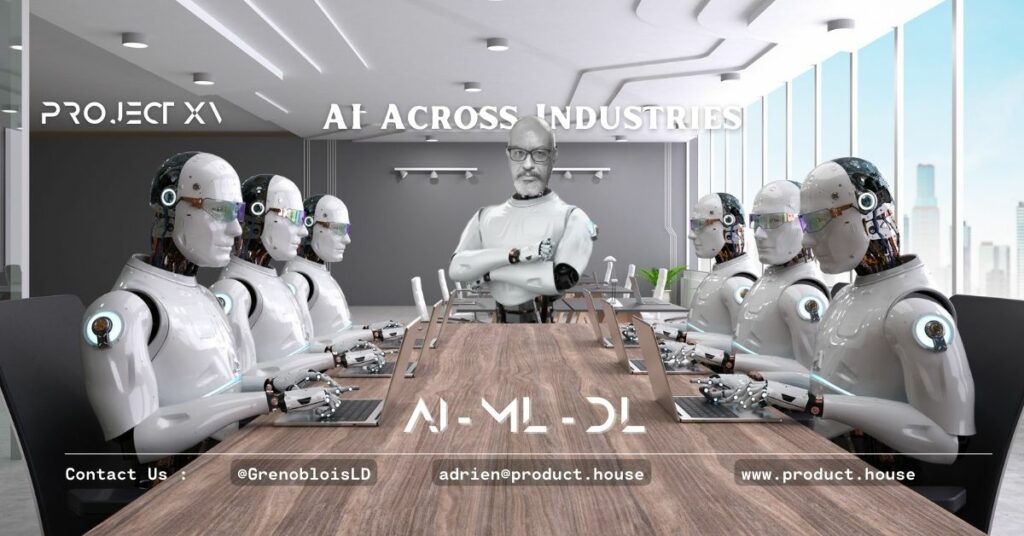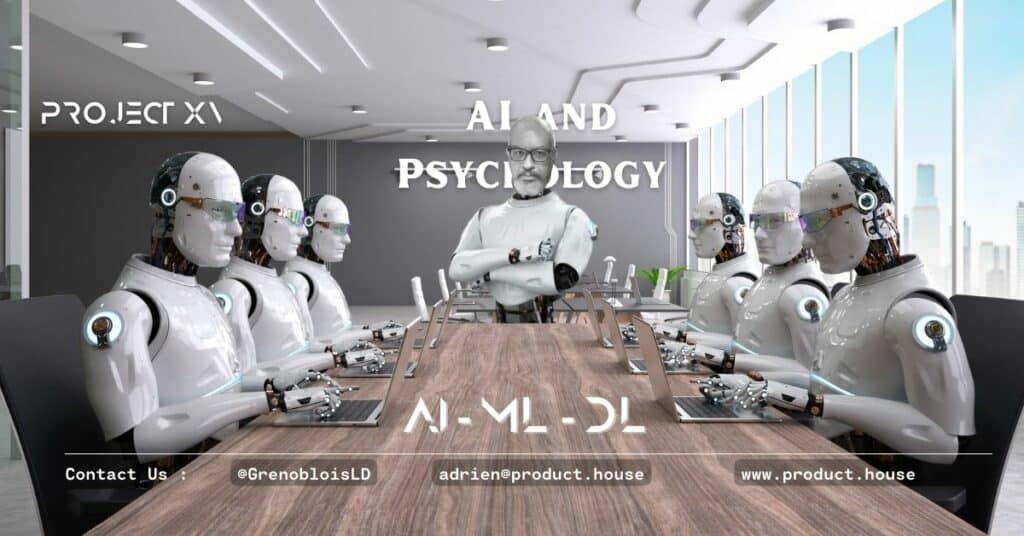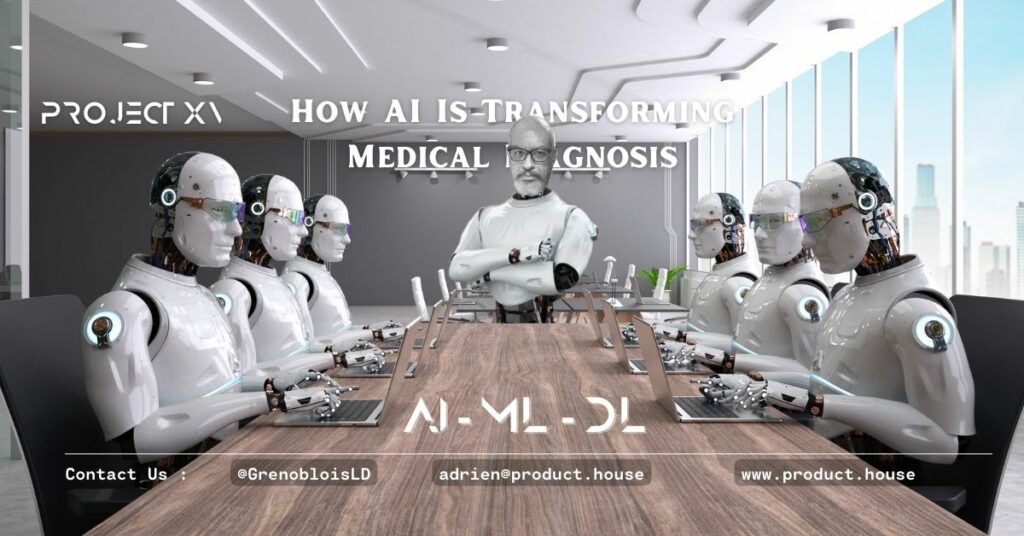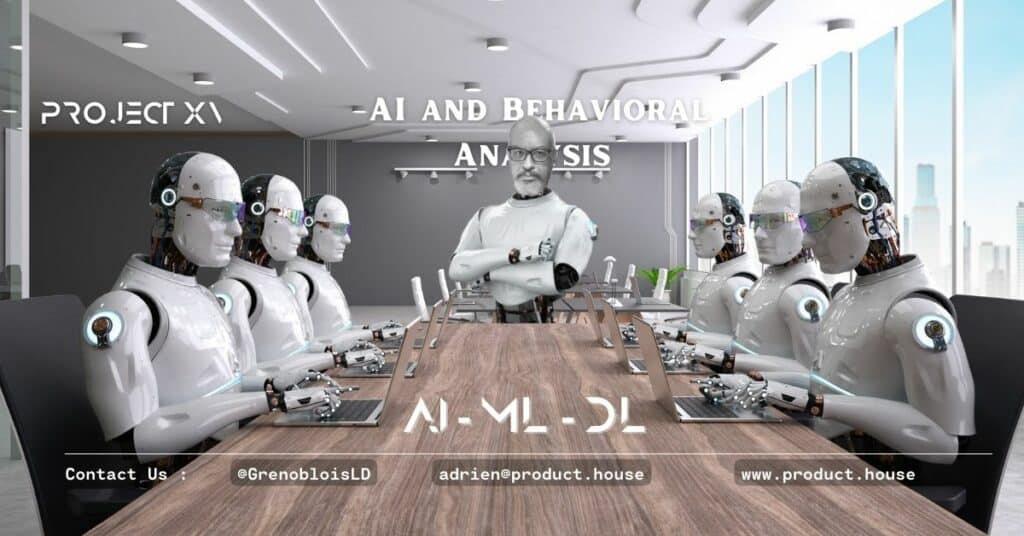AI Across Industries: The Ultimate Guide to Understanding Its Applications

Artificial Intelligence (AI) is a term used to describe the ability of machines to perform tasks that typically require human intelligence. The field of AI has a rich history, dating back to the early 20th century with the development of the first computers. The field has seen significant growth in recent years, thanks in large part to the development of deep learning algorithms and advancements in computer hardware.
The benefits of AI are numerous, from improved efficiency in business and healthcare to enhanced creativity in the arts. However, as with any new technology, there are also risks to consider, such as the potential for job displacement and the ethical implications of AI development.
In this topic cluster, we will explore the various applications of AI across a range of industries, from business and healthcare to agriculture and aerospace. We will examine the ways in which AI is changing the landscape of these industries and the potential benefits and risks associated with this change.
AI in Business
One of the areas where AI has had a significant impact is in the world of business. From marketing to sales, AI is being used to improve efficiency, reduce costs, and enhance the customer experience.
In this section, we will explore real-world examples of how businesses are using AI to revolutionize their operations. We will look at the ways in which AI is being used to improve marketing strategies, streamline sales processes, and enhance customer support.
AI in Healthcare
Another area where AI is having a significant impact is in the field of healthcare. From improving medical diagnosis and treatment to enhancing mental health care, AI is changing the way that healthcare is delivered.
In this section, we will explore the various ways in which AI is being used to improve healthcare outcomes. We will look at the ways in which AI is being used to diagnose and treat diseases, as well as its role in improving mental health care.
AI in Education
AI is also being used to transform the way that we teach and learn. From intelligent tutoring systems to learning analytics, AI is being used to improve educational outcomes and create more personalized learning experiences.
In this section, we will explore the various ways in which AI is being used in education. We will look at the ways in which AI is being used to improve student learning, as well as its role in creating more personalized educational experiences.
AI in Finance
In the world of finance, AI is being used to improve fraud detection, investment analysis, and risk management. By analyzing vast amounts of data, AI is able to identify patterns and make predictions that were previously impossible.
In this section, we will explore the various ways in which AI is being used in finance. We will look at the ways in which AI is being used to improve fraud detection, investment analysis, and risk management.
AI in Society
As AI becomes increasingly integrated into our daily lives, it is important to consider the ethical and legal implications of its development and use. In this section, we will explore the potential social impact of AI, including its implications for the future of work and the ethical considerations that must be taken into account.
AI and the Environment
AI is also being used to address some of the biggest environmental challenges facing our planet, from climate change to resource depletion. In this section, we will explore the ways in which AI is being used to combat these challenges and create a more sustainable future.
AI and Creativity
AI is not just being used to solve problems; it is also being used to enhance creativity and generate new forms of artistic expression. In this section, we will explore the various ways in which AI is being used in the arts, from music composition to visual arts.
AI and Gaming
AI is also transforming the gaming industry, from improving gameplay to enhancing game design. In this section, we will explore the ways in which AI is being used in gaming, from creating
AI and Natural Language Processing
Natural language processing (NLP) is a field of AI that focuses on the interaction between computers and human languages. NLP is being used to develop chatbots and virtual assistants, as well as to improve machine translation.
In this section, we will explore the ways in which AI is being used in NLP. We will look at the development of chatbots and virtual assistants, as well as the ways in which AI is improving machine translation.
AI and Robotics
AI is also being used to enhance the capabilities of robots, from manufacturing to healthcare. In this section, we will explore the ways in which AI is being used in robotics, from optimizing resource extraction to improving patient care.
AI and Transportation
AI is changing the way that we travel, from self-driving cars to more efficient traffic management. In this section, we will explore the ways in which AI is being used in transportation, from making our roads safer to reducing congestion in our cities.
AI and Agriculture
AI is being used to optimize crop yields, reduce waste, and improve livestock management. In this section, we will explore the ways in which AI is being used in agriculture, from precision farming to the use of autonomous robots.
AI and Cybersecurity
AI is being used to improve cybersecurity by detecting and preventing cyber attacks. In this section, we will explore the ways in which AI is being used in cybersecurity, from improving identity verification to protecting against malicious activity.
AI and Natural Resources
AI is being used to manage and optimize natural resources, from renewable energy to water management. In this section, we will explore the ways in which AI is being used to protect the environment and create a more sustainable future.
AI and Sports
AI is being used to enhance athletic performance, from improving coaching strategies to preventing injuries. In this section, we will explore the ways in which AI is being used in sports, from analyzing athlete data to improving training techniques.
AI and Space Exploration
AI is being used to improve the safety and efficiency of space missions, from assisting astronauts to extracting resources from other planets. In this section, we will explore the ways in which AI is being used in space exploration, from improving astronaut safety to creating more efficient resource extraction techniques.
AI and Journalism
AI is being used to curate news stories and improve fact-checking in journalism. In this section, we will explore the ways in which AI is being used in journalism, from creating personalized news feeds to detecting fake news stories.
AI and Law
AI is being used to improve legal research and streamline contract review. In this section, we will explore the ways in which AI is being used in the legal industry, from improving contract analysis to enhancing dispute resolution.
AI and Smart Cities
AI is being used to create more sustainable and livable urban environments, from energy management to urban planning. In this section, we will explore the ways in which AI is being used in smart cities, from optimizing energy efficiency to improving public services.
AI and Remote Work
AI is being used to improve productivity and enhance the remote work experience. In this section, we will explore the ways in which AI is being used in remote work, from automating tasks to creating more efficient communication systems.
Conclusion
AI is a rapidly evolving field with a wide range of applications across a variety of industries. While there are many benefits to the development of AI, it is important to consider the potential risks and ethical considerations that must be taken into account. As we continue to explore the ways in which AI can be used to improve our world, it is important to approach its development and implementation with care and consideration for the impact it will have on society.
Trying to address a topic so vast while witnessing how fast it changes overnight in mind-blowing ways, is a real challenge. I hope however you’ll get a “no way back after using it” sense, so to speak.
Cheatsheet
10 FAQs about AI:
- What is AI? AI, or artificial intelligence, refers to the ability of machines to perform tasks that normally require human intelligence, such as learning, problem-solving, and decision-making.
- How does AI work? AI relies on algorithms, which are sets of rules that enable machines to process and analyze data, recognize patterns, and make decisions based on that information.
- What are the benefits of AI? AI has the potential to improve efficiency, accuracy, and productivity across a range of industries, from healthcare to finance to manufacturing.
- What are the risks of AI? There are concerns about the potential for AI to lead to job displacement, exacerbate inequality, and be used for malicious purposes.
- What is the history of AI? The field of AI has roots dating back to the 1950s, but recent advances in machine learning and deep learning have spurred rapid growth and development in the field.
- What are some real-world examples of AI? AI is being used in a wide range of applications, from chatbots and virtual assistants to self-driving cars and robotic surgery.
- How is AI impacting the job market? AI has the potential to automate many jobs, but it also has the potential to create new jobs and industries.
- What ethical considerations should be taken into account when developing and using AI? There are concerns about bias in AI algorithms, the potential for misuse, and the need to ensure that AI is developed and used in a responsible and ethical manner.
- What resources are available for learning about AI? There are many online courses, books, and resources available for learning about AI, including online tutorials, books on machine learning, and academic programs in data science and AI.
- What are some key terms to understand when learning about AI? Some key terms include machine learning, deep learning, neural networks, algorithms, and data science.
Main reminders:
- AI refers to the ability of machines to perform tasks that normally require human intelligence.
- AI relies on algorithms and data to recognize patterns and make decisions.
- AI has the potential to improve efficiency and productivity across a range of industries, but there are concerns about job displacement and ethical considerations that must be taken into account.
- There are many resources available for learning about AI, including online courses, books, and academic programs.
Resources:
- AI For Everyone (Online Course) – Coursera
- Machine Learning: A Probabilistic Perspective (Book) – Kevin P. Murphy
- Data Science and Machine Learning Bootcamp (Online Course) – Udemy
Books:
- “Superintelligence: Paths, Dangers, Strategies” – Nick Bostrom
- “Human Compatible: Artificial Intelligence and the Problem of Control” – Stuart Russell
- “The Master Algorithm: How the Quest for the Ultimate Learning Machine Will Remake Our World” – Pedro Domingos
Some additional references for a more global view:
- “Human Compatible: Artificial Intelligence and the Problem of Control” by Stuart Russell
- “Superintelligence: Paths, Dangers, Strategies” by Nick Bostrom
- “Life 3.0: Being Human in the Age of Artificial Intelligence” by Max Tegmark
- “Artificial Intelligence: A Modern Approach” by Stuart Russell and Peter Norvig
- “The Master Algorithm: How the Quest for the Ultimate Learning Machine Will Remake Our World” by Pedro Domingos
- “Machine Learning Yearning” by Andrew Ng
- “Deep Learning” by Ian Goodfellow, Yoshua Bengio, and Aaron Courville
- “Artificial Intelligence with Python” by Prateek Joshi
- “Rebooting AI: Building Artificial Intelligence We Can Trust” by Gary Marcus and Ernest Davis
- “AI Superpowers: China, Silicon Valley, and the New World Order” by Kai-Fu Lee
List of terms:
- Machine learning: a subfield of AI that involves training algorithms to recognize patterns and make predictions based on data.
- Deep learning: a type of machine learning that involves training neural networks with large amounts of data.
- Neural networks: a type of algorithm that is modeled after the structure of the brain and is used in deep learning.
- Algorithms: sets of rules that enable machines to process and analyze data and make decisions based on that information.
- Data science: the study of data, including collection, analysis, and interpretation.
- Bias: a concern in AI that refers to the potential for algorithms to be trained on biased data or to perpetuate existing biases in society.
- Job displacement: a concern in AI that refers to the potential for machines to automate many jobs and displace human workers.
- Ethical considerations: concerns related to the development and use of AI, including the potential for misuse, bias, and the need to ensure that AI is developed and used in a responsible and ethical manner.







